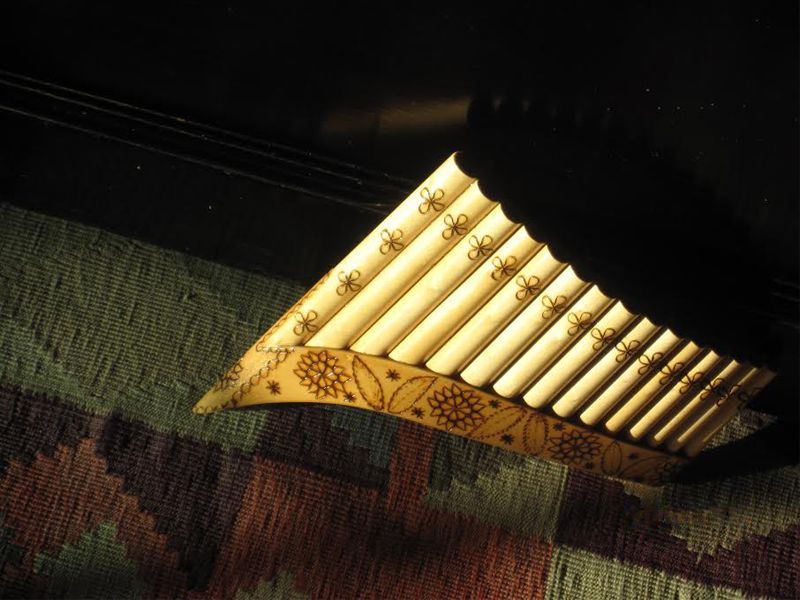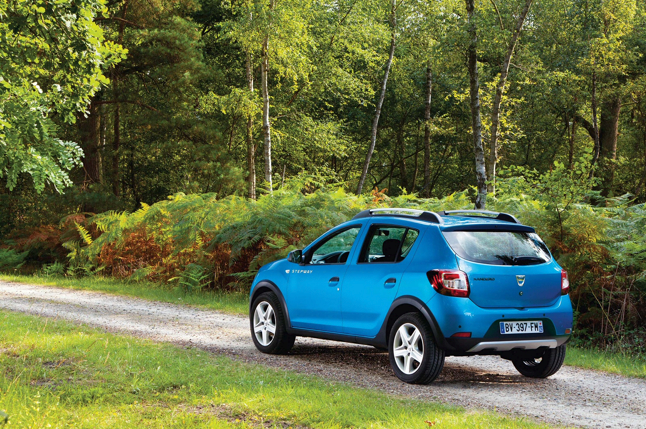Gheorghe Zamfir–Invertita

Ten weeks after Ceausescu’s execution, Michel and I arrived to the Bucuresti Hotel. The hotel lights were dim because of government restrictions. Only 40-watt light bulbs were allowed in private and public buildings. The hotel lobby’s chandelier contained the maximum alotted wattage and half the number of light bulbs were broken or unlit. In the corridors there were no lights at all. But from our dimly-lit room, we had a lovely view of Bucharest’s main street, Calea Victoriei. Little did we know then, that within the hour, our small window would offer us a view of revolution.
We had spent the prior week in Budapest sharing an apartment with Romanian-American friends who had traveled with us from New York. We continued together to Bucharest, while they stayed with their family outside the city.
The morning after a night of “revolution” and Romanian politics, we decided to ignore the turmoil and continue to be tourists, despite our friends’ advice. My husband was eager to show me the places where he had spent the first part of his life: the terrace from his bedroom on the square, Cismigiu Gardens, the French Lycée, and medical school.
When we arrived at a bustling shopping district, Lipscani, I noticed a modern building with lots of police guarding every inch of the heavy cemented façade. I commented to my husband that something must be going on, for it was cordoned-off by dozens of policemen. I took out my camera and started taking pictures. Five seconds later, a man tapped me on the shoulder and spoke to me in Romanian. My husband looked concerned, but pretended he did not understand the language, not wanting to expose himself as anything but American. I decided to answer in English and hoped to indicate that I’m a tourist. The man listened and then quickly left me. I smiled to my husband, but he wasn’t reassured.
One minute later, another man came over to us. He was not dressed in a police uniform, but in a suit and tie. He spoke to me in faltering English, “Camera. Photos.”
I answered politely and very rapidly. “I am a tourist. If you want, I’ll stop taking pictures.”
He left without saying a word. I smiled at my husband again, but Michel was not placated. He had understood every Romanian word. “He wants your film,” he whispered to me. “Secret police.”
Thirty seconds later, another man came over to us. He was also dressed in a business suit and his English was strongly understandable. He was less polite, even intimidating. I quickly understood his body language and took the roll of film from my camera. “Here,” I said, giving him the film. “I’m an American citizen. A tourist visiting your city.” I thought the best defense is a counter-attack.
My husband took out a map of the city and asked him in a crisp American accent, “Where is Lipscani?”
The agent hesitated to answer. Eyed us both suspiciously and reluctantly pointed in the direction. I took the cue and commented, “We want to find a restaurant. Taste your wonderful food.”
He was not flattered. He eyed my camera.
I understood his interest in my new American camera, and reluctantly, gave it to him. He took what he wanted and warned us, “Don’t come back to this building.”
We walked calmly away despite our legs wanting to run. My husband was upset. “Not much has changed since I was a boy.” He remembered when he had been summoned to the police station to be questioned for hours by different men. His father had been summoned. His mother had been summoned. They were escorted home to find the specified amount of cash the interrogators had demanded.
In twenty-four hours I got a taste of rebellion, revolution, secret police, and bribes. I’d have a lot of souvenirs for my Memory Chest.
When we returned back to our hotel, we received a telephone call from our friend’s doctor-brother. He was concerned about our wandering alone through the city.
“How would you like to go to Transylvania for a week?” he asked us. “It’s more beautiful there in the mountains and much calmer. I can arrange that one of my interns drives you and stays with you all the time. Protects you.”
My husband looked at me; I smiled, and Michel discussed the details with Dr. Mihescu. The next morning, we checked out of the Buchuresti Hotel and met Niki with his 4-horsepowered Dacia.

My husband sat in the passenger seat next to his new friend. I sat in the rear, notebook in hand. Michel and I were delighted with our new adventure. Bad luck had turned to good luck and we were given the opportunity to travel escorted to a region of marvels. Michel was thrilled to strengthen his Romanian vocabulary with such an intelligent guide, and I was delighted to look at everything around me for the first time. Best of all, my position in the back seat gave me a secret perspective of watching Michel’s reactions to what he was seeing after so many years. I could write with his eyes. His words became Mica’s.
It reminded me of how Goldoni, the 18th century Venetian playwright, would go every night to the Rialto with notebook in hand and hide in a dark corner to transcribe what people in the Square were saying.
Michel’s reactions directed my thoughts as I wrote. What a rare opportunity I had!
His and Mica’s Return Home was more beautiful than I could have ever imagined on my own. The nature of Romania’s countryside is marvelous and served as a perfect frame to my literary picture. The forests are rich in pine trees and evergreens. The mountains – rough and severe in places with alternating green hills – always reaching the sky. Cities have not changed since the 15th century and the conquering Empires have left their mark on architecture in a mosaic of chipped cultures.
As we traveled north from Bucharest, we left the city behind us. Cars became wagons and motors turned into horses. The violence and smoke bombs of revolution transformed into pine needles being burned for farms. The odors turned sweet and nature became freer. We visited Sinaia, Bran, Poiana Brasov, Brasov, Sibiu, Sighisoara. We ate grilled bear and snake and drank warm wine from wooden vats. Michel became happier as memories brought him closer to his beginnings. He was returning home. And I was writing:
Mica and Dinu continued north toward Transylvania. The aroma of burning leaves filled the moving car. Mica relaxed somewhat and looked out the window.
With every kilometer, it was as if she were going back in time. The deeper they traveled into the countryside, the more she saw carriages pulled by horses. When Dinu slowed down to pass one, she waved to the people. The excitement of remembering overtook her, and for a moment, she wished she was no longer the outsider observing. She wanted so much to be part of the nature she was traveling through. She swayed in the back seat of the car and wished the small vehicle would not keep her at bay from the past.
The car climbed the serpentine road, and Mica felt her ears clog as they approached the Carpathian Mountains. With each village they passed, the pieces of her childhood broke through the restraints of memory and emerged from the shadow of time. Her present merged with the past and she was transported into her old world and enjoying the thrill of going home.
It was the soft mist of early evening that Mica remembered most of all. The fragile vapor had a way of magically spreading its drops from the mountains to the meadows that she loved so much. In the winter, the dew turned to fine particles of ice and all the fields were covered in a blanket of white sparkling frost as if to put the day to rest.
She was going home, and the thought filled her with an excitement she thought she had lost forever. As she looked through the window, time confused its borders, months turned into seconds. Outside nothing had changed; inside, though, she was trying to find her old self.

* * *
